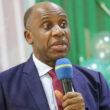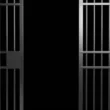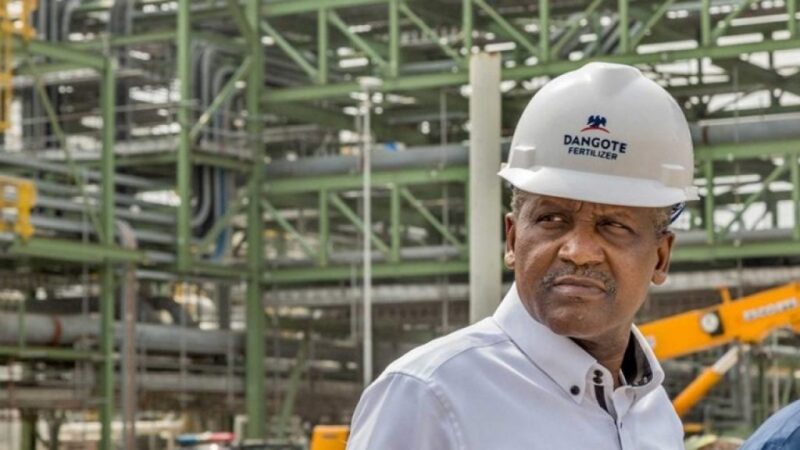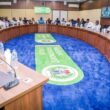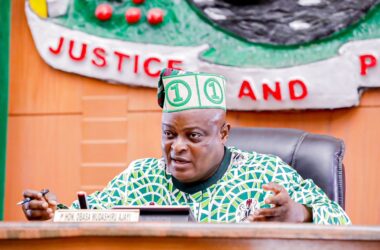A new disagreement has emerged between the Nigerian National Petroleum Company Limited (NNPCL) and Dangote Refinery concerning the volume of premium motor spirit (PMS), also known as petrol, being supplied. This ongoing issue surrounds the sale-purchase agreement for petrol between the two organizations.
According to reports gathered, NNPCL believes that Dangote Refinery has struggled to meet the agreed-upon supply volumes. NNPCL had initially expected 25 million litres of petrol, but last weekend the company stated that only 16.8 million litres were delivered. A source from NNPCL also emphasized that Dangote was struggling to meet even the 16.8 million litre figure.
However, Dangote Refinery disputes these claims. Speaking to Vanguard, the refinery revealed it had already supplied 111 million litres of petrol within a three-day span and that loading is still ongoing.
Dangote’s Group Chief Branding and Communications Officer, Anthony Chiejina, said, “We have already loaded 111 million litres of petrol and the exercise is ongoing… we would continue to provide the product to the market.”
If the figures provided by Dangote Refinery are accurate, this would mean that the company has not only met its previous commitments but has significantly exceeded the delivery amount. This could ease the country’s reliance on petrol imports, especially since Nigeria’s daily consumption is over 40 million litres.
However, despite these claims, importation by NNPCL seems to have increased. Recent imports have reportedly reached over 135 million litres within three weeks. Several vessels were noted to have delivered substantial quantities of petrol into the country as of mid-September.
These deliveries, along with Dangote’s increased supply, appear to have created a situation of petrol oversupply, just after a period of severe shortages that caused price hikes across the country.
In response to the sudden increase in petrol availability, some industry experts are speculating that Dangote’s refinery could help end the country’s dependency on fuel imports.
However, NNPCL has remained silent on Dangote’s latest supply figures. Efforts to get an official comment from the company’s Chief Corporate Communications Officer, Mr. Olufemi Soneye, were unsuccessful.
Meanwhile, the NNPCL has clarified why other oil marketers are unable to import petrol or buy directly from Dangote Refinery.
According to the company’s Executive Vice-President for Downstream Operations, Adedapo Segun, marketers avoid importing PMS due to concerns about making a loss.
He explained that many oil marketers have the permits to import fuel but prefer bringing in other petroleum products like diesel because the current market conditions make it unprofitable to import petrol.
He said: “When the marketers go to Nigerian Midstream and Downstream Petroleum Regulatory Authority, NMDPRA to get the permit or licence to get the import, typically they will say they want to import amount of automotive gas oil (AGO), aviation turbine kerosene (ATK), and some of them actually include petroleum motor spirit (PMS).
“They then go to market, check the market indices and say to themselves: PMS is still being sold below cost; if I bring it in, I’ll make a loss.
“Now they have approval to bring in ATK, AGO, and PMS, but they end up bringing only AGO and ATK.
“They do not bring in that PMS because the market is still not right for them. So, it is not because NNPC wants to be the sole importer or provider of PMS, it is because the other marketers won’t do it if it’s not profitable.”
“Basically, the situation has not changed there. So, NNPC off-taking is only because the others would not buy at the price Dangote will be willing to sell, which is reasonable. As soon as the price allows for it, you will see the marketers go to Dangote and buy.
“So, instead of saying NNPC is the only off-taker, let’s put it this way: NNPC is the only entity that is willing to off-take because NNPC has a role under law to be the energy provider of resort.”
In light of the fuel price increases and their impact on Nigerians, Dr. Muda Yusuf, Chief Executive Officer of the Centre for the Promotion of Private Enterprise (CPPE), urged the government to step in and provide relief to citizens, stating that the social safety net in Nigeria is “exclusively very weak.”
“I think we need to go back to the drawing board, the social safety net in Nigeria is exclusively very weak, the people are suffering seriously and there is a limit to what they can absorb in terms of the pains of all these policies
“The government should wade into this and see how they can restore normalcy as the citizens should not be exposed to commercial pricing of petroleum products.
“The citizens are not finding it easy at all. Most recent increases have even further fuelled inflation as many citizens are trekking to places where they would have taken buses and so on. So, we are praying for an urgent intervention from the presidency on this matter.”



